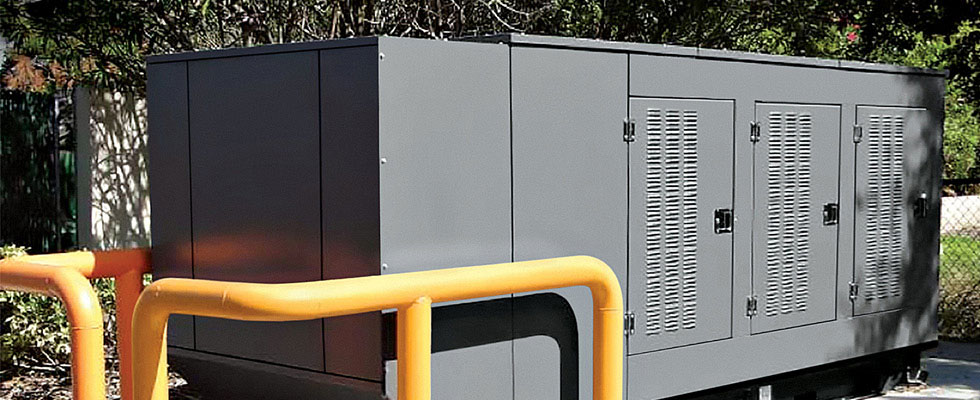
Extreme weather, fallen trees, car accidents and routine maintenance by utility companies cause millions of U.S. homes and businesses to lose power each year. Depending on the complexity of the problem, power outages can affect an entire region.
For hospitals, electricity outages result in life-or-death situations. When electricity isn’t flowing, essential machines like ventilators and incubators power down, and operating rooms go dark. Depending on the facility’s location and what types of natural disasters and meteorological events it might face — from earthquakes and floods to hurricanes and electrical storms — specific contingency plans must be in place to provide power to the hospital if the local power grid fails. Since even a momentary loss of power can be detrimental, it’s common practice for hospitals to prepare by installing propane-fueled backup generators.
Beth Donovan, Shipley Energy’s director of propane operations and first female president of the Pennsylvania Propane Gas Association, believes propane backup generators are a game changer for hospitals nationwide. “When the power grid is interrupted or goes down completely, outages cause severe issues for hospitals and the quality of care they can provide their patients,” Donavan said. “Propane generators power on as soon as an electrical outage is detected so medical professionals can continue to assist patients while the utility works to restore power to the area.”
For emergency propane generators to work effectively, they must first be installed properly, regularly serviced and provided with sufficient fuel to run when power is unavailable. Propane is crucial in emergency backup generators because of its reliability, efficiency and safety.
The Benefits of Propane-Fueled Emergency Generators
Lifesaving Backup Power
Hospitals require a consistent power supply to operate life-support equipment, maintain lighting and power essential medical devices. Propane generators are a reliable source of backup power during emergencies, ensuring hospital staff and patients’ safety.
Quick Response to Blackouts
Propane generators start quickly and provide immediate power during an electrical outage, reducing the risk of critical equipment failures. Generators can also be programmed to power the most critical areas of a health care facility if needed.
On-Site Storage
For added security, hospitals often have on-site propane storage. Thousands of gallons of additional propane storage prolong the time a hospital can operate without electricity. Additional on-site fuel storage is vital in natural disasters when supply or access to regular deliveries might be disrupted.
Environmental Considerations
Although it’s stored in a liquid state, propane vaporizes into the air if it happens to leak or spill. Propane is also nontoxic, nonpoisonous and doesn’t emit the sulfur dioxide or methane typically released when burning oil. This cleaner-burning fuel reduces emissions and can minimize a hospital’s environmental impact.
Cost-Efficiency
A common strategy is to pre-buy a hospital’s annual fuel supply during periods when the cost of propane is less than average. If a hospital typically uses 10,000 gallons of propane a year, bulk purchasing at just a few cents less than average results in substantial cost savings. Pro tip: Propane generators can actually help hospitals reduce their electricity costs. Through peak shaving, facilities can use their propane generators for power on the five hottest days a year to reduce the price per kilowatt hour they pay for their electricity year-round.
Indefinite Shelf Life
Propane generators have become increasingly popular with businesses because of the fuel’s reliability. Propane does not “go bad” or have a shelf life compared to other fuels, like diesel or gasoline. Because emergency generators are designed to be just that, the fuel could sit idle for months at a time outside of regular testing.
The increasing number of power outages in the U.S. showcases the critical need for reliable backup power solutions, particularly in vital sectors like health care. Propane-fueled emergency generators have emerged as a game-changing technology, ensuring that hospitals can maintain life-saving operations while benefiting from the perks of propane. The fuel’s cost-efficiency, environmental advantages and shelf life position it as a no-brainer regarding reliability.
Indeed, partnering with a reliable supplier to establish on-site storage tanks adds an extra layer of hospital preparedness. This approach guarantees that hospitals have a sufficient fuel reserve to navigate through large-scale outages with the utmost safety and security, further enhancing their ability to provide uninterrupted care to patients in times of crisis. By embracing this innovative approach, institutions can enhance their resilience in the face of unpredictable electrical outages, ultimately safeguarding lives, reducing costs and minimizing their environmental impact.


